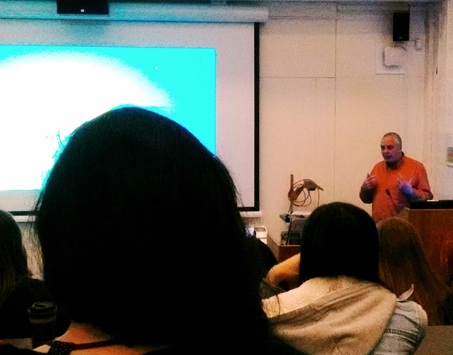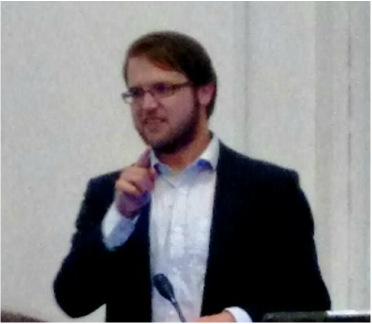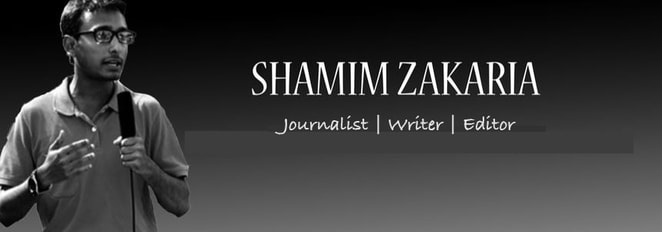 Paul Lashmar, Investigative Journalist empowering the audience
Paul Lashmar, Investigative Journalist empowering the audience
It’s been about four weeks now since I stepped in British land and the journey both interms of education and personal endeavour in this country has been exuberantly exciting and assuredly this voyage would lead to a lot more erudite discoveries. Being a student of journalism apart from knowing the journalistic aura and political fragrance of the country, the greatest perk came today in the form of an empowering seminar entitled, ‘Investigative Journalism-the past, present and the future.’ The event ushered the audience with an opportunity to hear some of the impeccable voices in journalism speaking about the arena on the whole and their arduous journey.
The discussion primarily centred around investigative journalism, its practice and practical relevance. The event that was stratified into two parts, the second of which belonged to some stalwart editors hailing from Brighton’s print and broadcast media sharing their thought on the aspects of local journalistic practice.
The evening embarked with Paul Lashmar’s presentation explaining the nitty-gritty of investigative journalism. He is a renowned investigative journalist having set numerous precedences during his endeavour and is also a senior lecturer in journalism at University of Sussex. Emphasising on how to be a successful investigative journalist he asked the reporters to brad on curiosity. “State of mind is core to investigative journalism. The reporters need to keep questioning things,” added Paul Lashmar. Pointing at the traits of an investigative reporter and his report Paul Lashmar put forth a valiant point stating, “Facts that nobody has previously dug out and nobody else can ever dig out in future course.” While there isn’t any specific trait of an investigative reporter but what Paul Lashmar stressed upon was possessing some amount of previous reporting experience and knowledge of law most importantly.
During the course of his talk Paul Lashmar recollected numerous interesting professional anecdotes from his long spanning journalistic career. While he suggested a galore of acknowledged documentaries/movies pertaining to investigative journalism that included Michael Moore’s Fahrenheit 9/11 and Insider among others; he also threw light on some of the most illuminating investigative journalists from around the world including the likes of Nick Davies; Bob Woodward; Seymour Hersh; John Pilger and Carl Bernstein.
The discussion primarily centred around investigative journalism, its practice and practical relevance. The event that was stratified into two parts, the second of which belonged to some stalwart editors hailing from Brighton’s print and broadcast media sharing their thought on the aspects of local journalistic practice.
The evening embarked with Paul Lashmar’s presentation explaining the nitty-gritty of investigative journalism. He is a renowned investigative journalist having set numerous precedences during his endeavour and is also a senior lecturer in journalism at University of Sussex. Emphasising on how to be a successful investigative journalist he asked the reporters to brad on curiosity. “State of mind is core to investigative journalism. The reporters need to keep questioning things,” added Paul Lashmar. Pointing at the traits of an investigative reporter and his report Paul Lashmar put forth a valiant point stating, “Facts that nobody has previously dug out and nobody else can ever dig out in future course.” While there isn’t any specific trait of an investigative reporter but what Paul Lashmar stressed upon was possessing some amount of previous reporting experience and knowledge of law most importantly.
During the course of his talk Paul Lashmar recollected numerous interesting professional anecdotes from his long spanning journalistic career. While he suggested a galore of acknowledged documentaries/movies pertaining to investigative journalism that included Michael Moore’s Fahrenheit 9/11 and Insider among others; he also threw light on some of the most illuminating investigative journalists from around the world including the likes of Nick Davies; Bob Woodward; Seymour Hersh; John Pilger and Carl Bernstein.
Summing up his empowering talk Paul Lashmar asked the aspiring journalist to choose any great journalist as their role model and follow their footsteps. Adding to it he said, “If I ask a group of literature students to give me three names of their favourite author, assuredly each one in the group would come up with theirs, in spur of a minute. However, if I ask a group of journalism student about three of their favourite journalists most of them would keep pondering.” Thus, he directed every journalism student to follow their favourite journalist, their work, their stories and how they actually scratch a story.
Apparently what gave the jam packed audience enough food for thought was, when Paul Lashman asked the students to think themselves not as students but as trainee journalist from day one. “Don’t merely rely on books. Get out, talk to people and get yourself involved. You are a journalist from first day itself.”
The second personage to grace the dais was Mike Gilson who serves as the editor of Brighton’s local daily, The Argus. Apart from his personal journey he spoke at length about journalism opportunities in the city. Perhaps one of the most important suggestion coming from him was listening to people even if they aren’t of any interest. “Listen to people, how much uninteresting they might be. You never know who gives you a tip-off for a good story,” he added. Speaking in particular about the importance of a good story Mike Gilson said, “Good stories are always in demand.” He also briefly touched on the aspects of morality and audacity which a journalist must posses. “Small guys need to step up to those in power and say look we are similar, we are equal and have our voices,” he added.
Leading the broadcast flag was Tim Ridgeway, the News Editor of Latest TV. His brief talk encompassed the importance of local TV channels and the role these channels can play affecting the lives of city dwellers. He also spoke by and large about the functioning and organisational structure of Latest TV.
Apparently what gave the jam packed audience enough food for thought was, when Paul Lashman asked the students to think themselves not as students but as trainee journalist from day one. “Don’t merely rely on books. Get out, talk to people and get yourself involved. You are a journalist from first day itself.”
The second personage to grace the dais was Mike Gilson who serves as the editor of Brighton’s local daily, The Argus. Apart from his personal journey he spoke at length about journalism opportunities in the city. Perhaps one of the most important suggestion coming from him was listening to people even if they aren’t of any interest. “Listen to people, how much uninteresting they might be. You never know who gives you a tip-off for a good story,” he added. Speaking in particular about the importance of a good story Mike Gilson said, “Good stories are always in demand.” He also briefly touched on the aspects of morality and audacity which a journalist must posses. “Small guys need to step up to those in power and say look we are similar, we are equal and have our voices,” he added.
Leading the broadcast flag was Tim Ridgeway, the News Editor of Latest TV. His brief talk encompassed the importance of local TV channels and the role these channels can play affecting the lives of city dwellers. He also spoke by and large about the functioning and organisational structure of Latest TV.
 Tim Ridgeway, News Editor, latest TV during his talk
Tim Ridgeway, News Editor, latest TV during his talk
Greg Hadfield was the speaker to pull down the curtains on this evening of enlightenment. Starting on an interesting note on empowering the voiceless he said, “If you are thinking to build your career in this field, don’t think only interms of working in newspaper or print. There are numerous other ways of giving voice to the voiceless.” Greg Hadfield who is the editorial director of Brighton and Hove Independent, enlightened about which he believes is the most beautiful aspect of journalism; wherein one goes out, finds new stuff and finally releases it. Asking to reading the works of George Orwell, came as an important piece of advice for the aspiring journalists. He further spoke on how there are always new stories around and to lie back and say that there’s nothing new is being ‘lazy’ as a journalist.
The event organised by Brighton Journalists Works and University of Sussex, marked the presence of a full house audience and the peroration saw a brief question and answer session where students tried quenching their thirst of curiosity.
A personal experience
Since the time I was informed about this seminar I was excited, for this would be my maiden experience in UK hearing from the people who directly hails from the industry. Being an on-campus resident I started from my room at around 6:10pm and just after walking a few meters it started raining cats and dogs! However, somehow running, huffing and puffing I made it to the event and had a ride on the wheel of knowledge.
The seminar ended but the rain didn’t, indeed it was more heavy than before. Yet, after a fierce battle with the droplets finally was back in my abode being soaked from top to bottom. But, all that barely matters when one gets to hear such impeccable minds of journalism. It was certainly an erudite experience getting appraised about the practical scenario from these stalwarts. And this is how I would like to conclude my evening-
'Drenched both in knowledge and a gusty downpour'
NB- The poor quality of the images is resultant of mobile phone photography. The author highly regrets it.
The event organised by Brighton Journalists Works and University of Sussex, marked the presence of a full house audience and the peroration saw a brief question and answer session where students tried quenching their thirst of curiosity.
A personal experience
Since the time I was informed about this seminar I was excited, for this would be my maiden experience in UK hearing from the people who directly hails from the industry. Being an on-campus resident I started from my room at around 6:10pm and just after walking a few meters it started raining cats and dogs! However, somehow running, huffing and puffing I made it to the event and had a ride on the wheel of knowledge.
The seminar ended but the rain didn’t, indeed it was more heavy than before. Yet, after a fierce battle with the droplets finally was back in my abode being soaked from top to bottom. But, all that barely matters when one gets to hear such impeccable minds of journalism. It was certainly an erudite experience getting appraised about the practical scenario from these stalwarts. And this is how I would like to conclude my evening-
'Drenched both in knowledge and a gusty downpour'
NB- The poor quality of the images is resultant of mobile phone photography. The author highly regrets it.

This work is licensed under a Creative Commons Attribution-NonCommercial-NoDerivs 3.0 Unported License.


